HMP Five Wells: New £253m prison's rehabilitation ethos
- Published
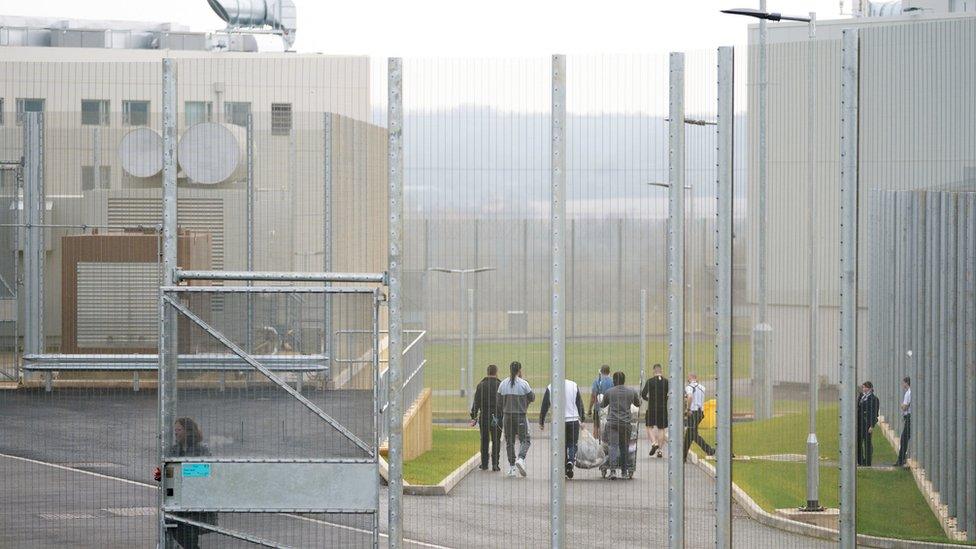
HMP Five Wells in Wellingborough cost £253m and will cater for 1,680 prisoners
A new £253m prison will aim to ensure inmates "lead productive lives" when they are released, its governor has said.
HMP Five Wells, in Wellingborough, opened last month and will cater for 1,680 prisoners.
The Category C facility will not have bars on its windows and cells will be called rooms.
Both its governor John McLaughlin and justice secretary Dominic Raab denied it is a soft-touch jail.
Named HMP Five Wells in recognition of a group of historic wells which surround the site, the facility is the long term successor of Wellingborough Prison which closed in 2012.
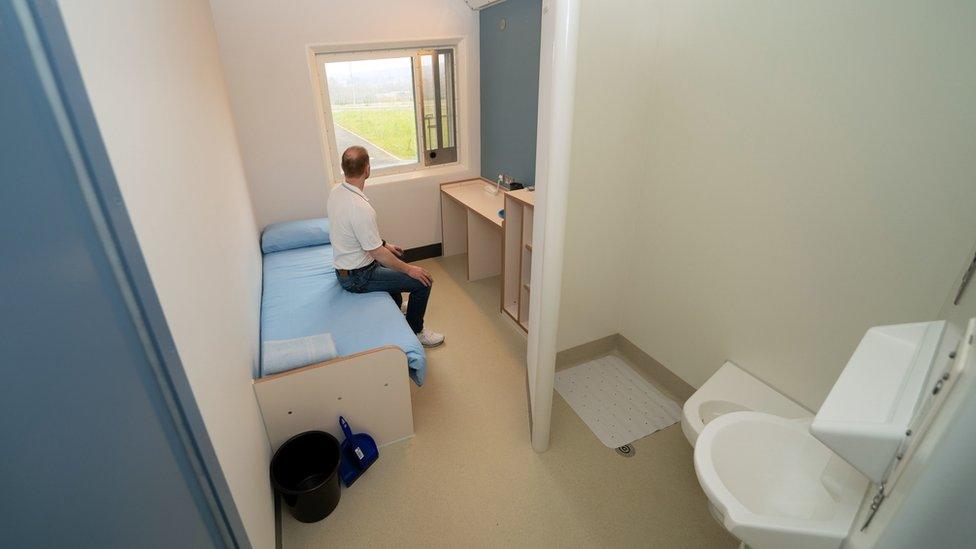
Cells at HMP Five Wells will be called rooms and windows will not have bars
As well as not having bars on windows, the jail will provide prisoners - who will be called residents - with access to a gym, snooker table, table tennis table and a tablet to gain new qualifications.
It will offer 24 different activity workshops which inmates can take part in to learn skills. These workshops will include engineering, catering and carpentry.
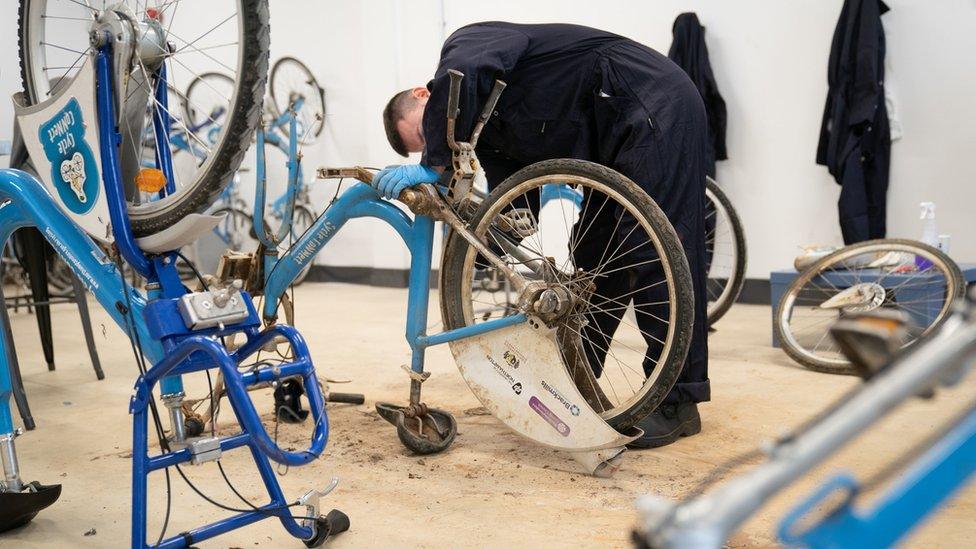
The prison has 24 workshops allowing inmates to learn a range of skills, including bike repair
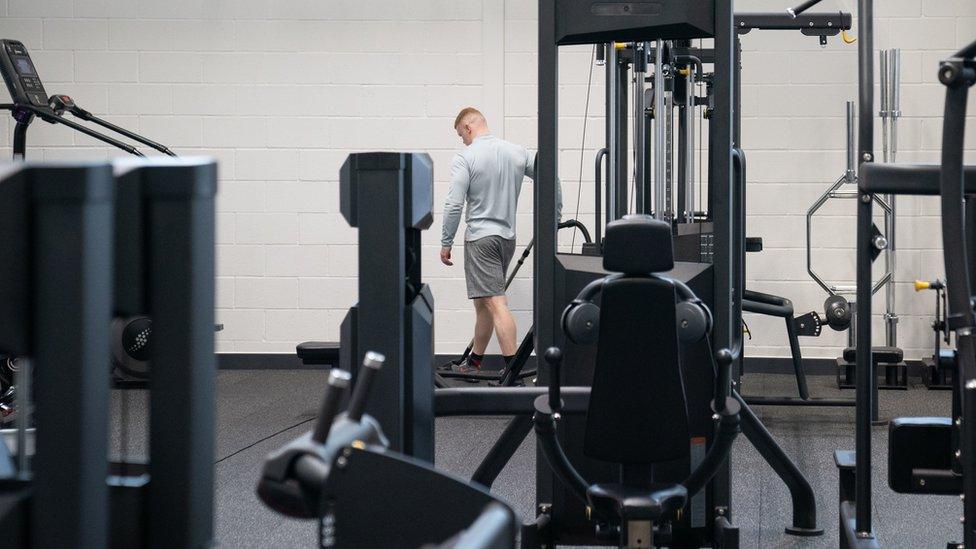
Prisoners will be able to use gym facilities at HMP Five Wells
Prison director Mr McLaughlin said Five Wells is "predicated on rehabilitation and resettlement".
He said: "I want the men in our care to have every opportunity to lead productive lives once they've completed their sentence."

Analysis
By Jon Ironmonger
The site feels stylish and relaxed, wildly different to the rest of the country's crumbling prison estate. But the tight security is impossible to conceal - everywhere there are cameras, one for each of the 1,700 inmates.
Five Wells is the first jail to be completed under government plans to add 20,000 vital places by the mid 2020s.
The men are spread across seven house blocks with different demographics. One will eventually hold sex-offenders. In each block there are four self-contained floors, which limit prisoners to mixing in groups of 60.
An inmate who's serving 25 years for murder tells me the older wings with more people are volatile places - "it's friendlier in here", he says.
Currently Five Wells is home to around 150 prisoners - peer leaders, who've been carefully selected by John McLaughlin, to embed his positive ethos.
But in the coming months it will begin taking men from the general population - 40 a week until December, when the jail is expected to reach capacity.

Mr McLaughlin said the jail would use qualifications, training and release on temporary licence to give prisoners a platform to "be better citizens once they are released.
"We will set the culture and ethos from day one. History tells me prisoners will respond and recognise the opportunities that exist."
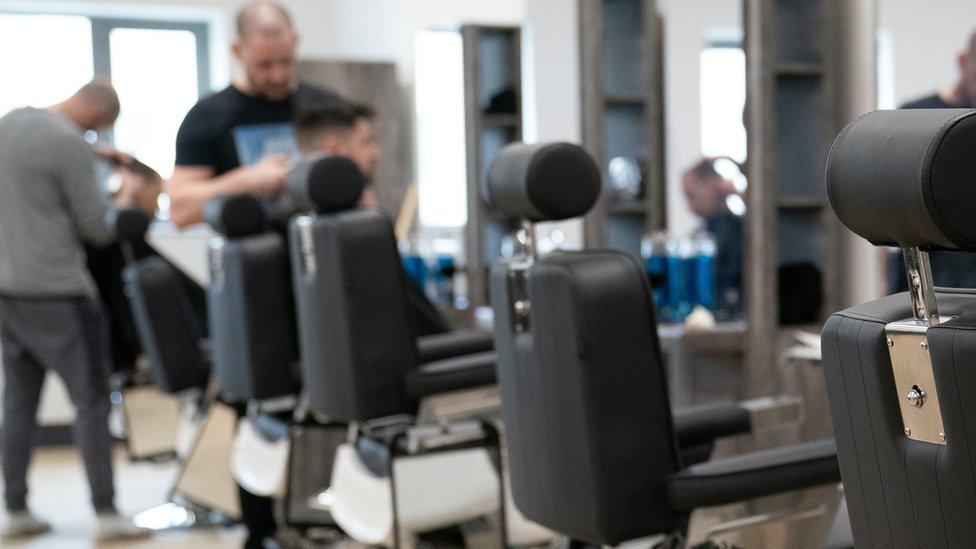
The Ministry of Justice said life at the prison would prepare people for the outside world
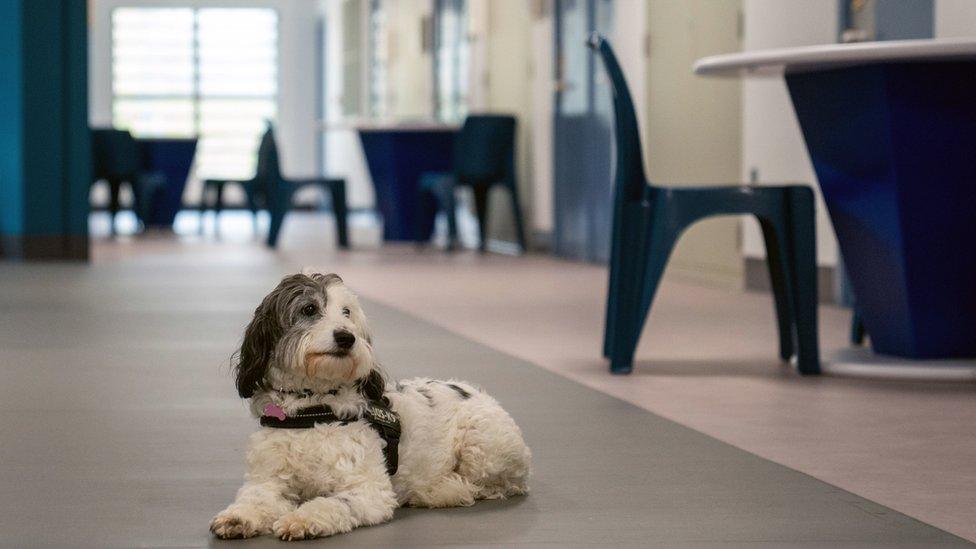
Pets as Therapy dog Tilly will keep prisoners company
He added that the prison would not be a "cushy" option, but would "challenge people's mindsets".
"This is encouraging them to see a better way," he added.
"I'm confident we will be doing the right thing and taxpayers' money will be well spent.
"We will create a situation where people don't come back to prison. That has to benefit everyone."
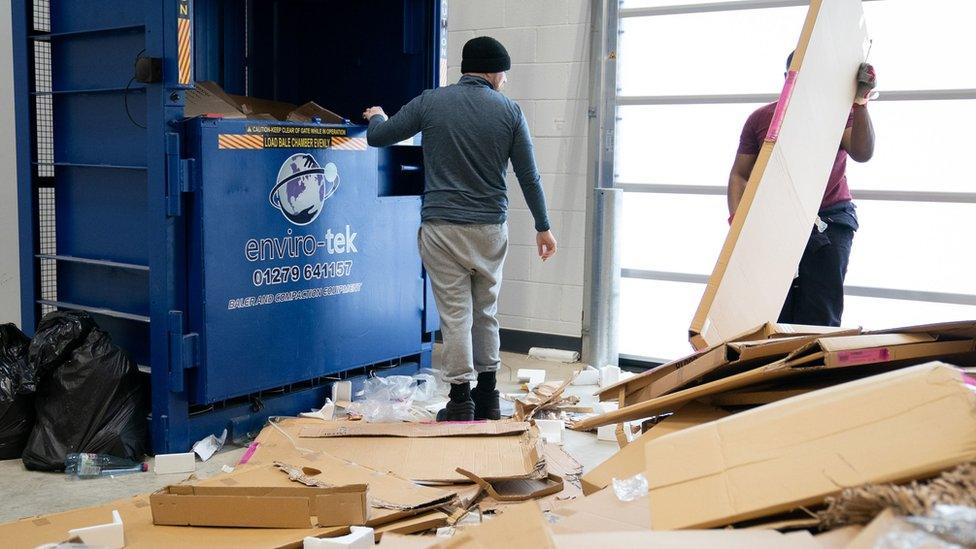
Among the places prisoners will work in HMP Five Wells is a recycling centre

Justice Secretary Dominic Raab said it will be up to offenders to take the second chance they are being given
Mr Raab said while he was "interested in punishment, because that's what the public expect," he was "not really interested in stigmatising" prisoners.
"If you come to a place like this with the gym, the workshops, the ability to do the skills education, you get a glimmer of the future as to how your life could be," he said.
"Then it's up to the offender to take that second chance and if they don't, they lose those entitlements, they lose those perks."
He added HMP Five Wells is the first prison to be built with "education, training and jobs at its heart".
"The sentencing is going up, but the question you've got to ask yourself if you're a victim or a member of the community, is what happens when they are released, because we are not going to lock everyone up for life."
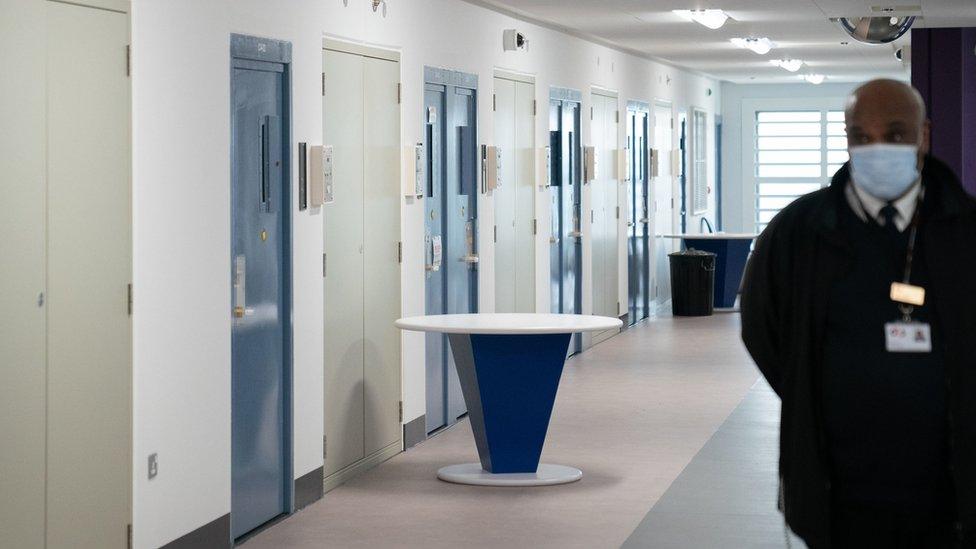
The accommodation block at HMP Five Wells, where cells will be known as rooms and prisoners as residents
The prison's head of activities, Sarah Guy, said a "lot of local businesses" had already engaged with the idea of helping people on "their rehabilitative journey".
She said the aim will be that every prisoner will leave with "a meaningful qualification".
Ms Guy said her ultimate goal is "seeing the person come in who has never had any opportunities, and taking them from A to B on a journey and then they leave and never come back".

Find BBC News: East of England on Facebook, external, Instagram, external and Twitter, external. If you have a story suggestion email eastofenglandnews@bbc.co.uk, external
- Published11 February 2022
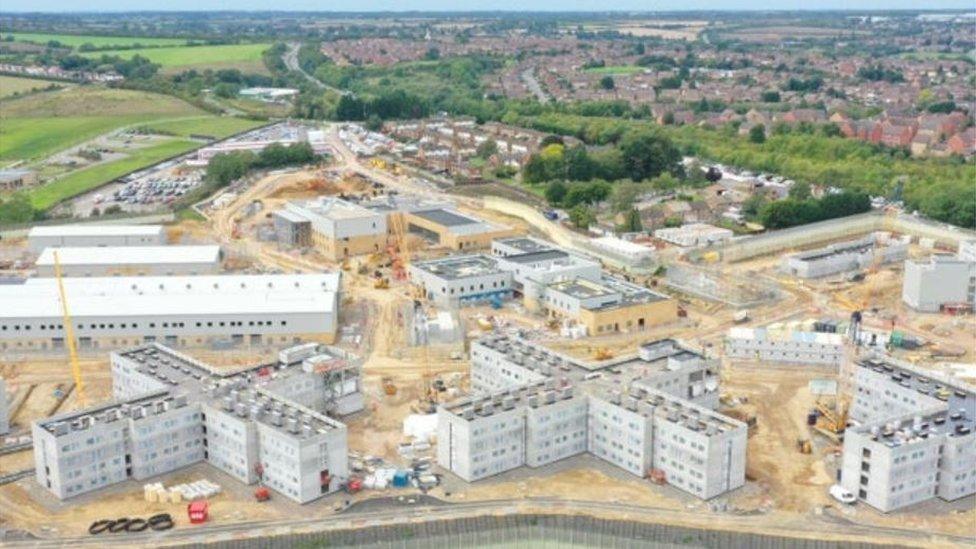
- Published6 October 2020
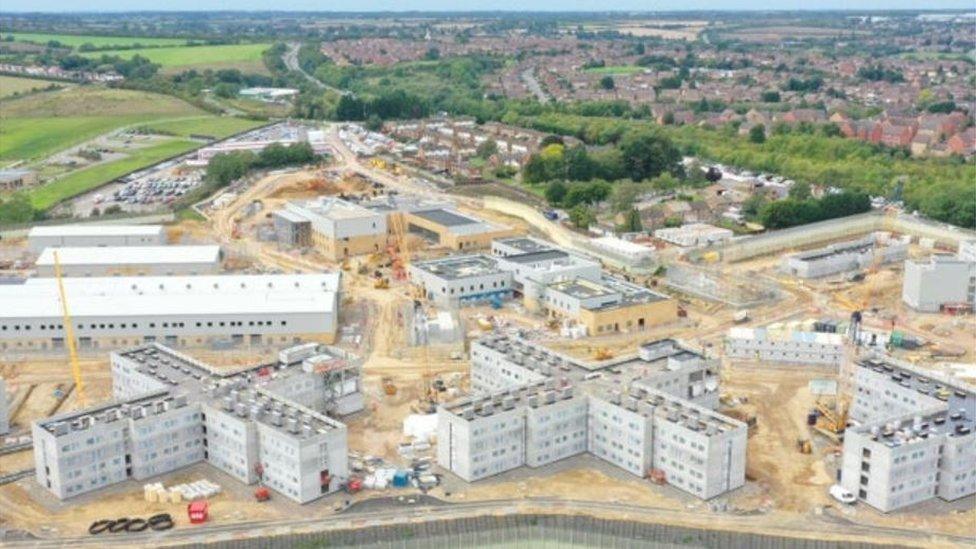
- Published9 July 2020
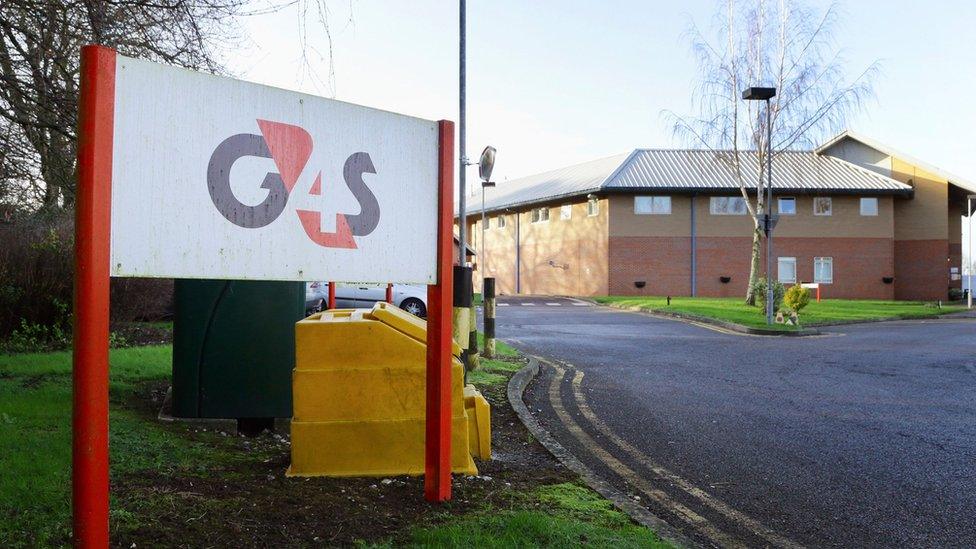
- Published27 August 2020
